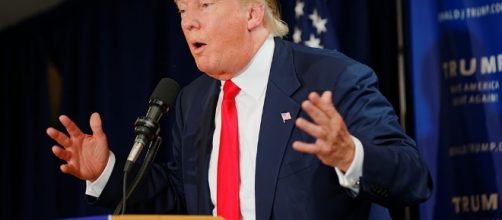Washington and Moscow are gradually plunging into their most severe crisis since the beginning of the Cold War. It seems that politics is outpacing the ability of the governments of both nations to control the looming danger.
On Wednesday, President Trump reluctantly signed the Russia sanction bill passed by both chambers of Congress into law. The law seeks to punish Russia for the alleged interference in the 2016 US presidential election, which both the White House and Kremlin denied any collusion. The law sparked an aggressive response by Moscow.
Trump warns of frosty relationship
Trump admitted that the law potentially harms the crucial relationship between the two leading nuclear powers. He blamed legislators for compelling him into signing the sanction measures.
However, the worsening situation could also be attributed to the lack of a strategic White House-Russia policy. A combination of the policy of confrontation and accommodation towards Russia and a struggle for influence between President Trump and Congress contributed largely to the miscalculation between the two Cold War foes.
Russia’s threat to begin a trade war following Wednesday's signing of the sanctions by Trump echoed outrage at the new restriction on the Russian economy.
The measures will also have a significant effect on the EU economy – prompting a threat by the European Union to retaliate the Russia sanction.
The Kremlin was not particularly happy with the White House for allowing lawmakers to usurp the powers of the President to veto, which indicate disappointment in Moscow that Trump was not able to fulfill his pledge to improve ties with Russia.
Russia’s retaliatory measures
Russia retaliated on Sunday when President Vladimir Putin said the U.S. must reduce its diplomatic staff by 755 in Russia. The action signals a delayed response to the expulsion of 35 Russian diplomats and the seizure of Russian government-owned compounds by the U.S. during the Obama administration as punishment for the alleged interference in U.S.
election.
The sanctions bill signed by Trump is veto-proof with the majority in Congress which reflects the doubt by bipartisan members of the President seeming motivation toward Moscow and the impression that the Trump administration cannot properly manage its own foreign policy contributed to the foray.
Upon signing the sanctions bill, Trump argued that the move, which restricts his power to soften the sanctions, raises constitutional concerns. He maintained his position that improving ties with Moscow was a great foreign policy for the good of all. But most people regard Trump’s argument as a threat to the overall U.S. interest.


